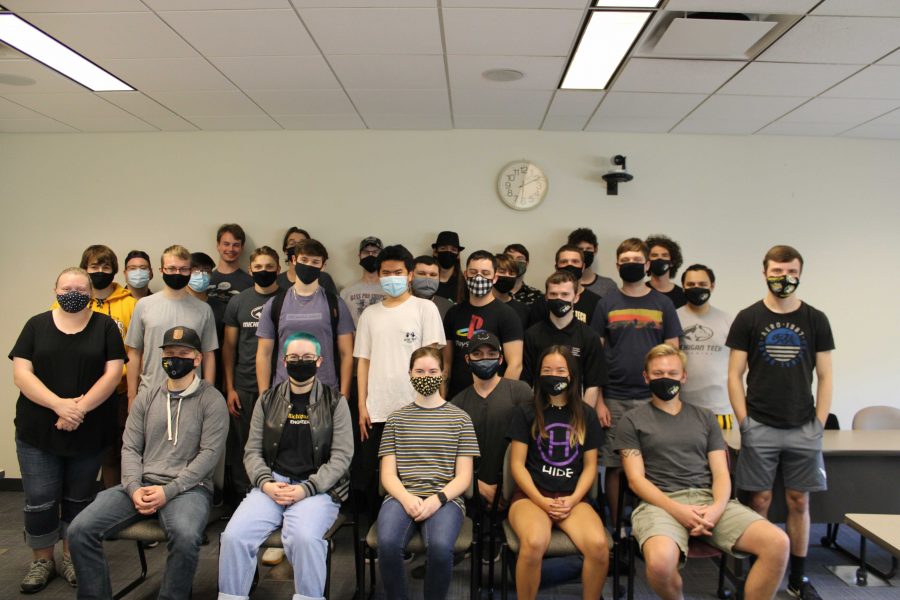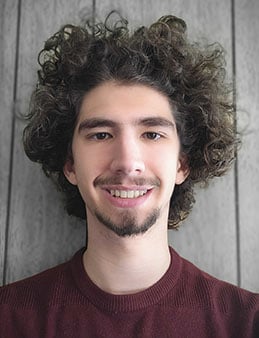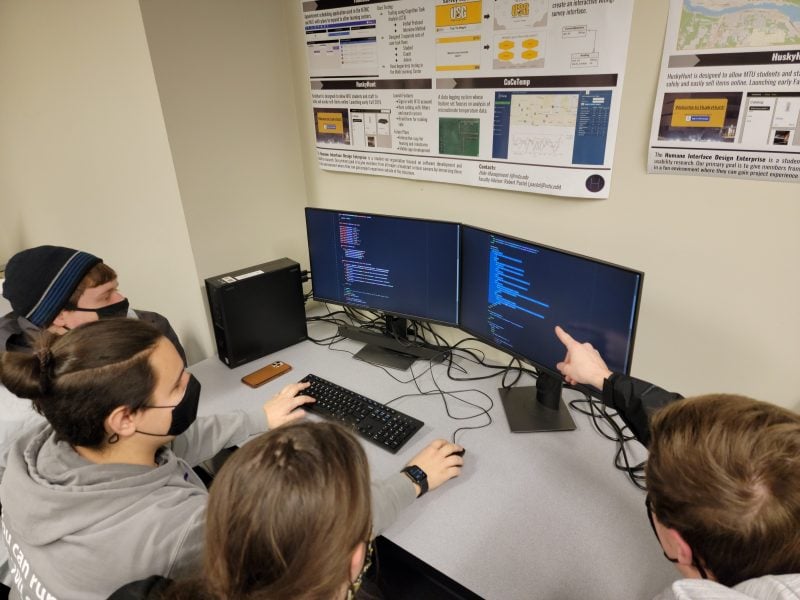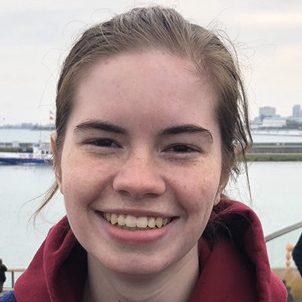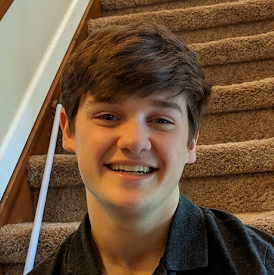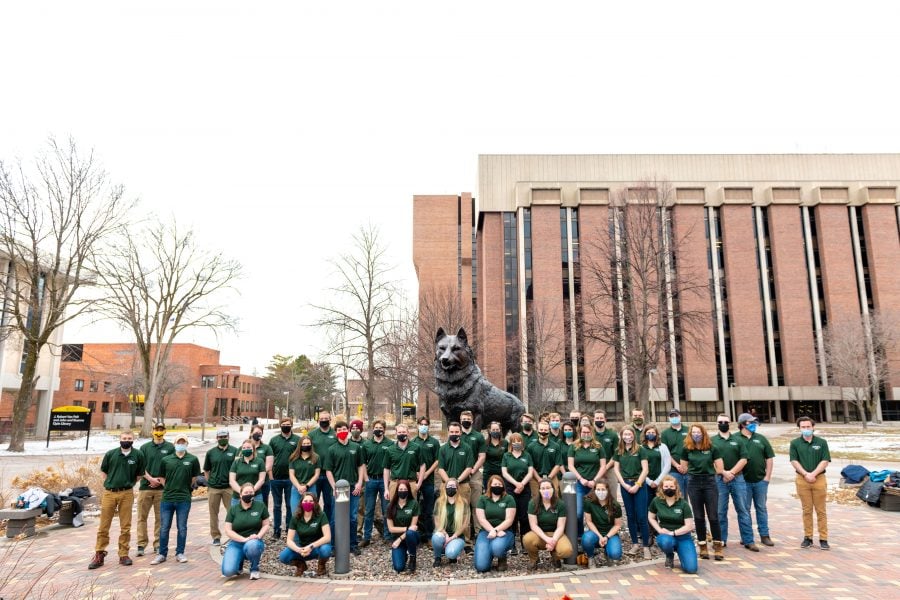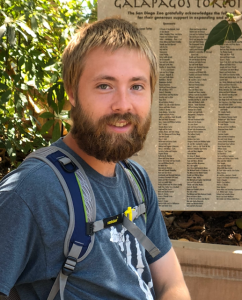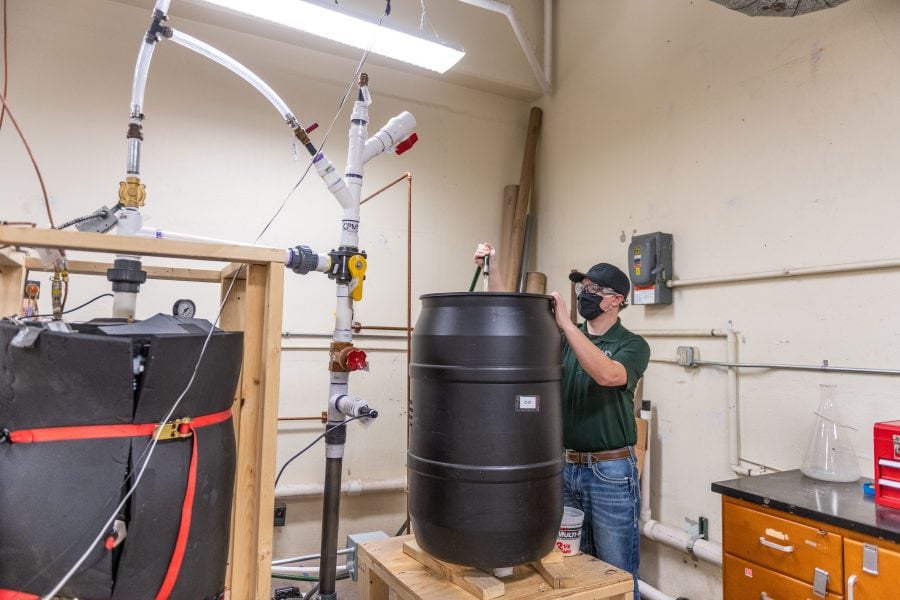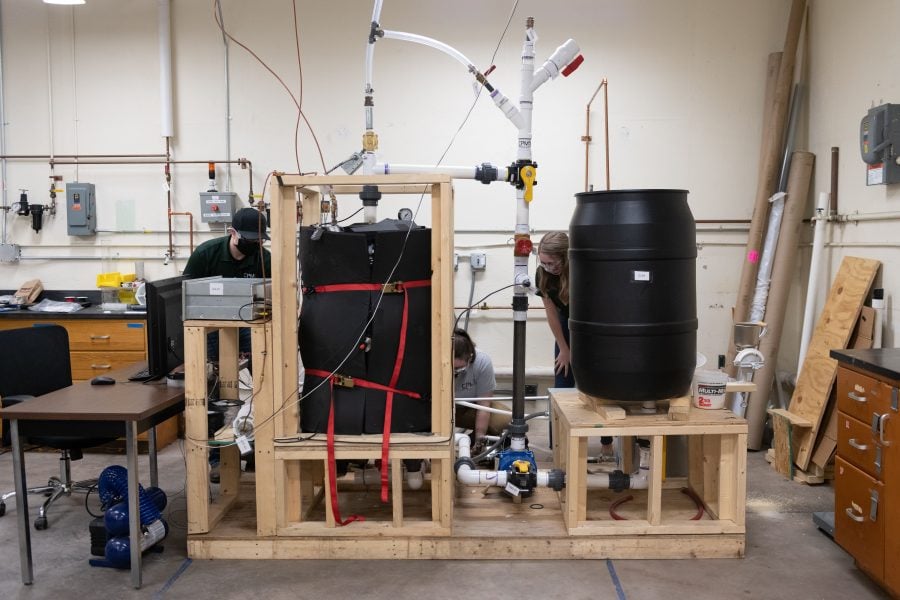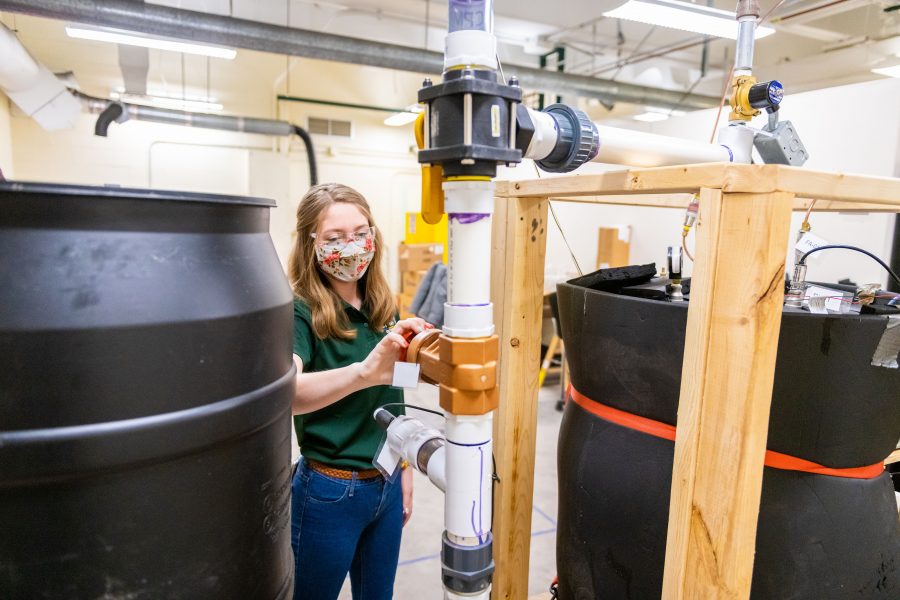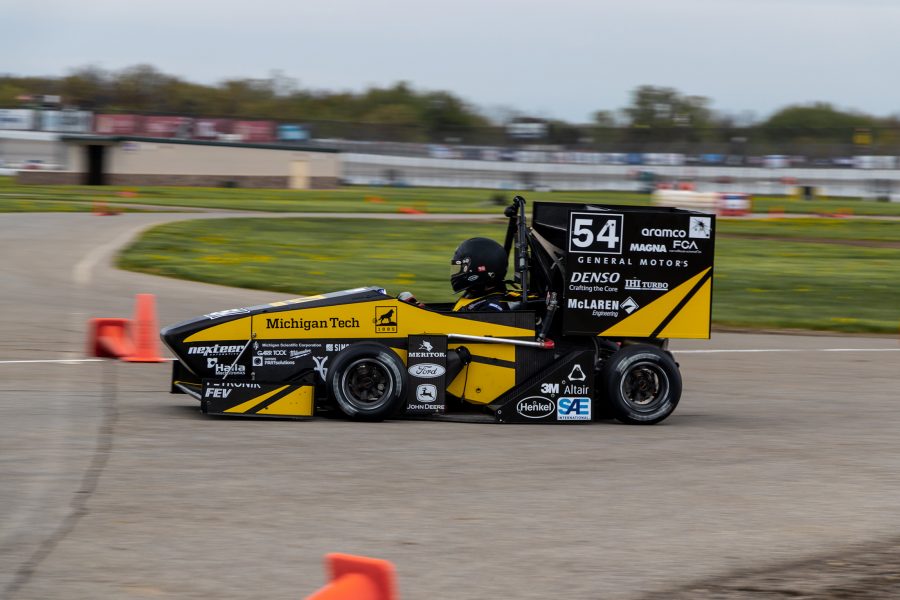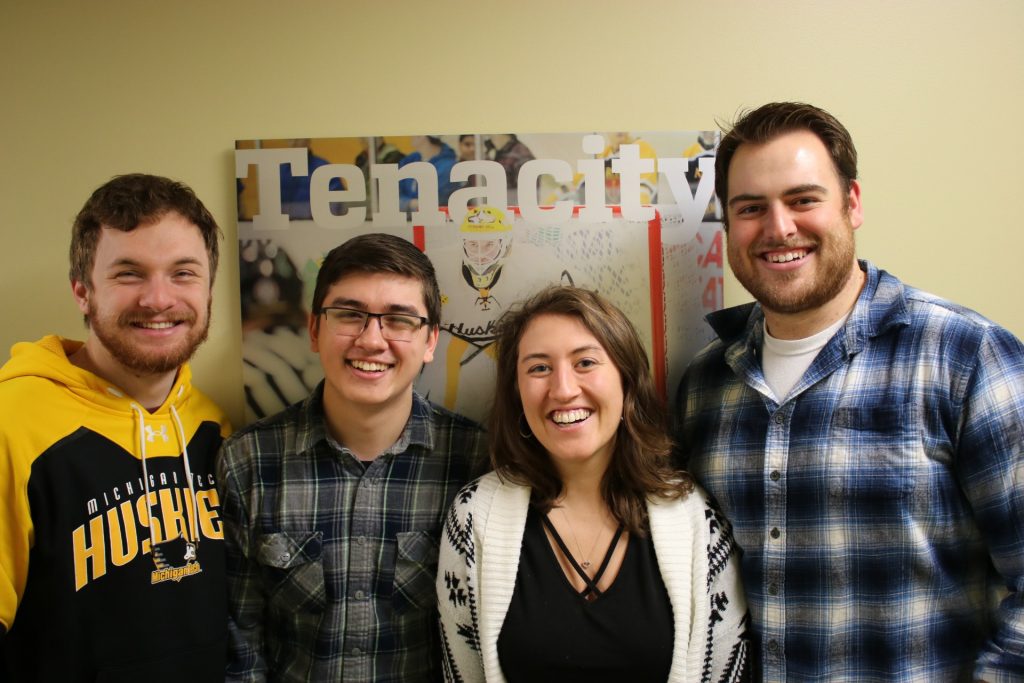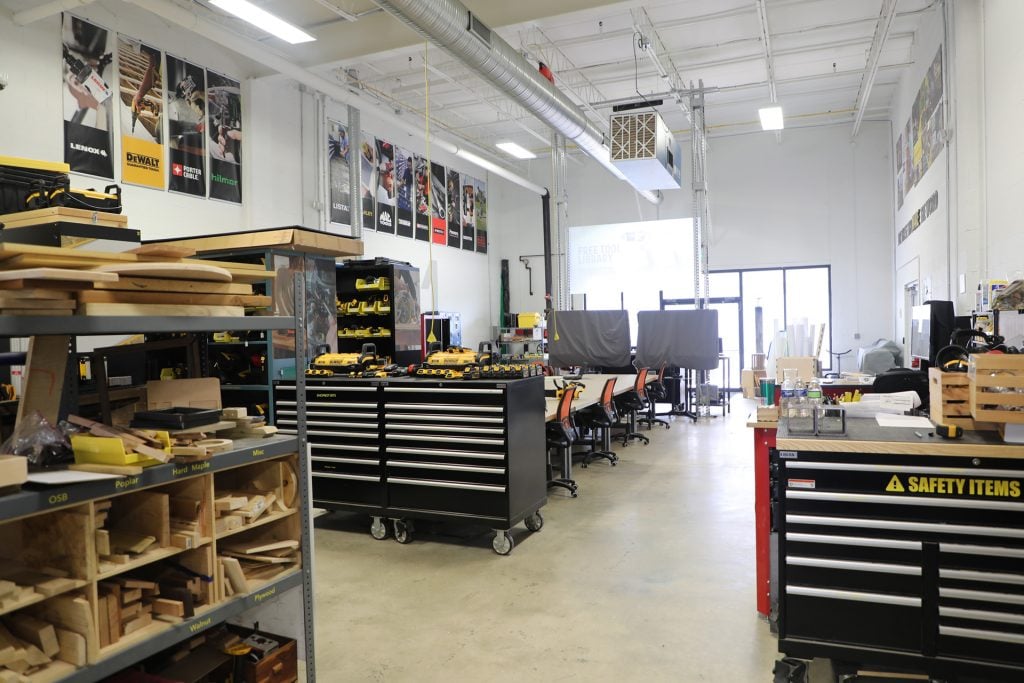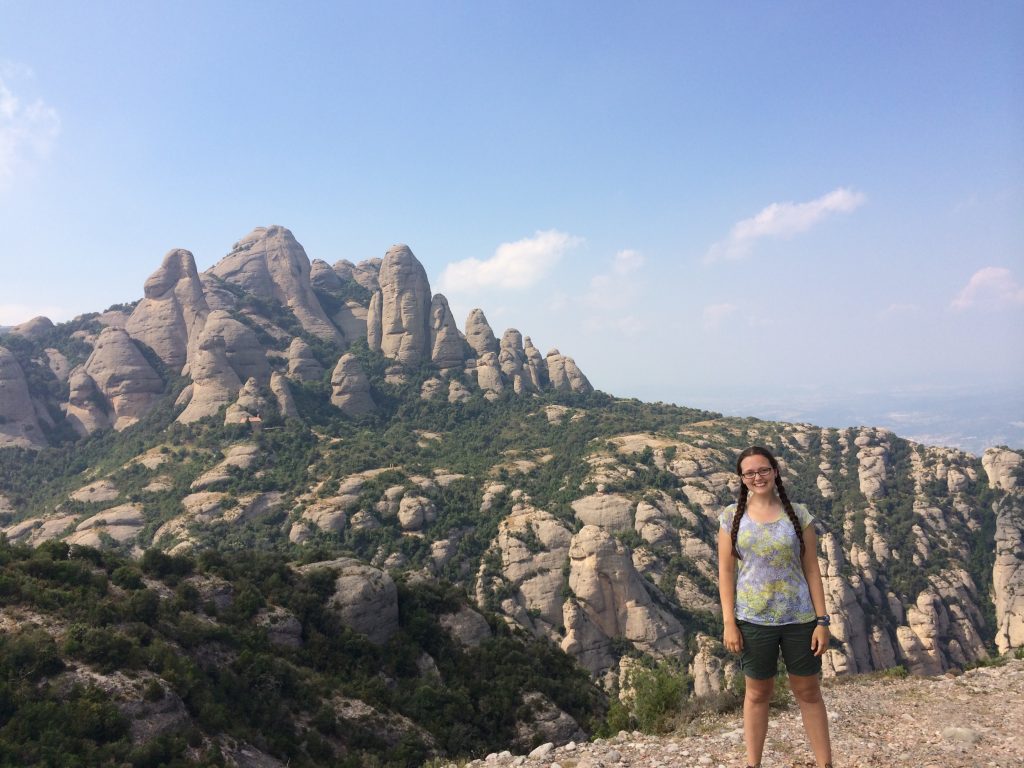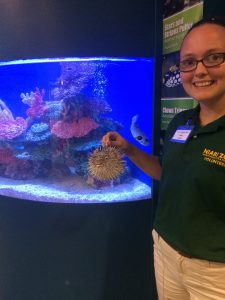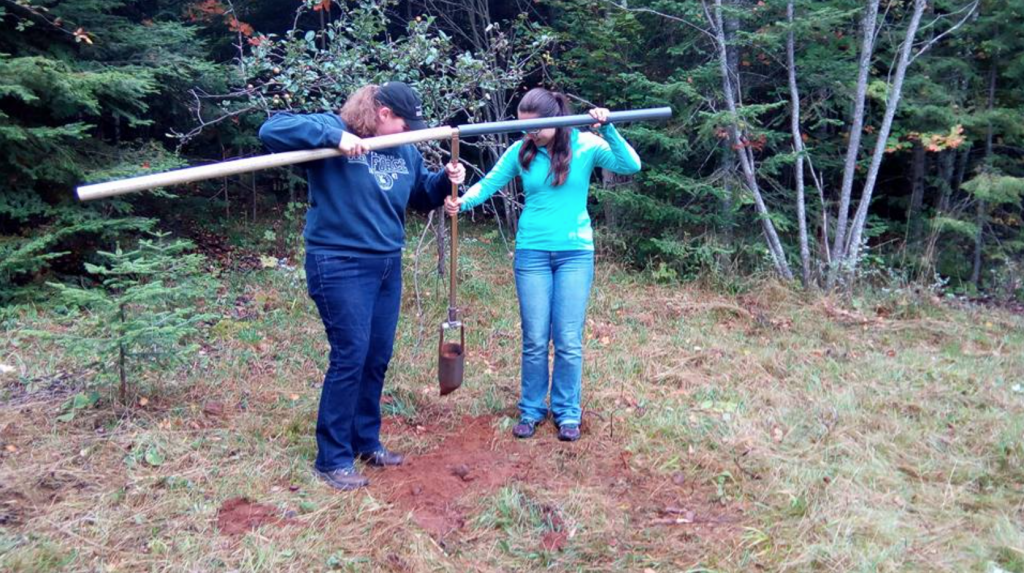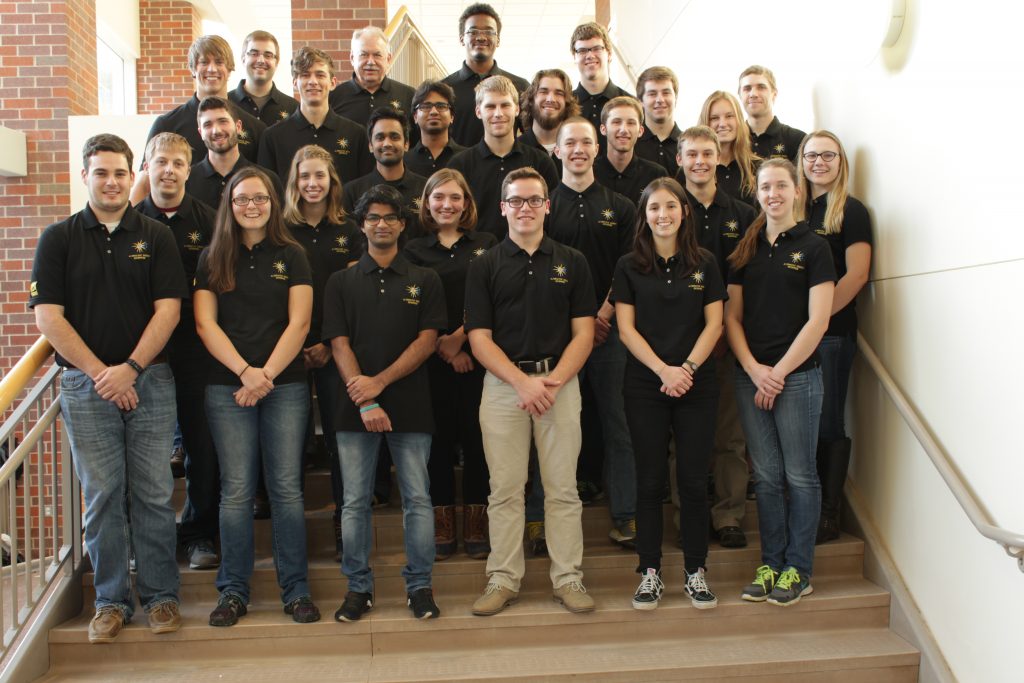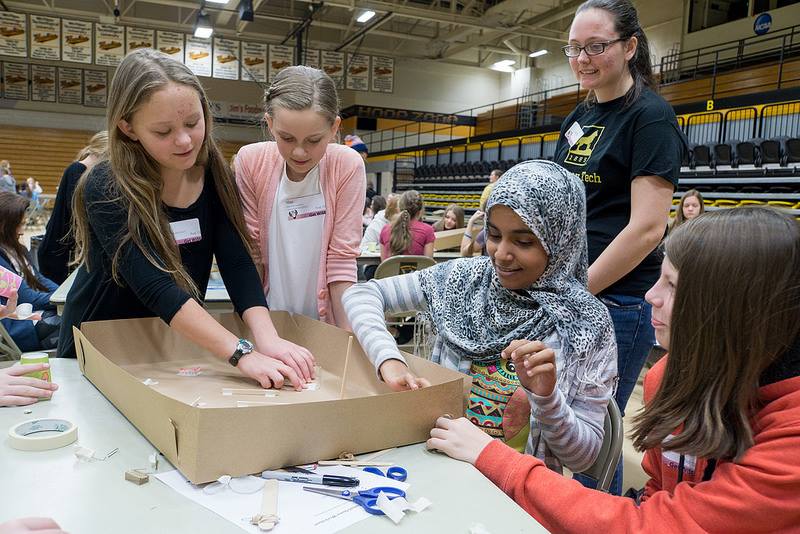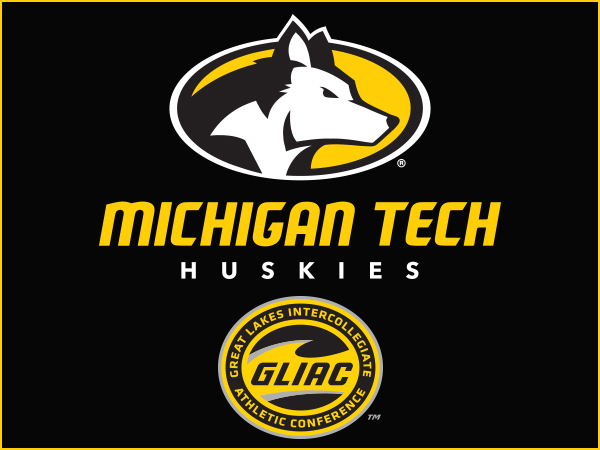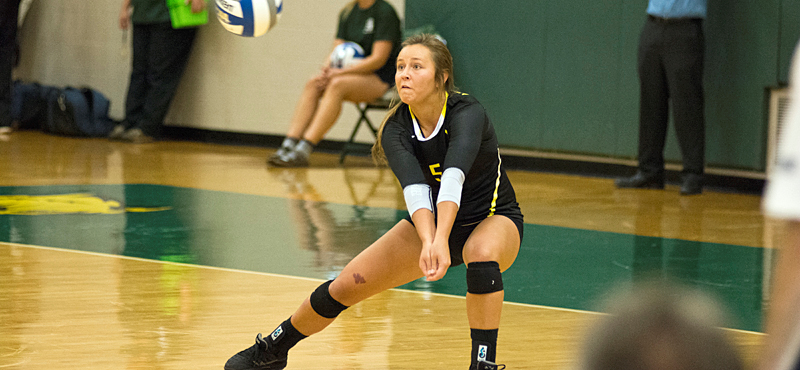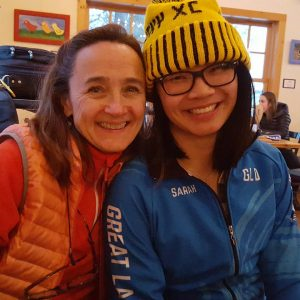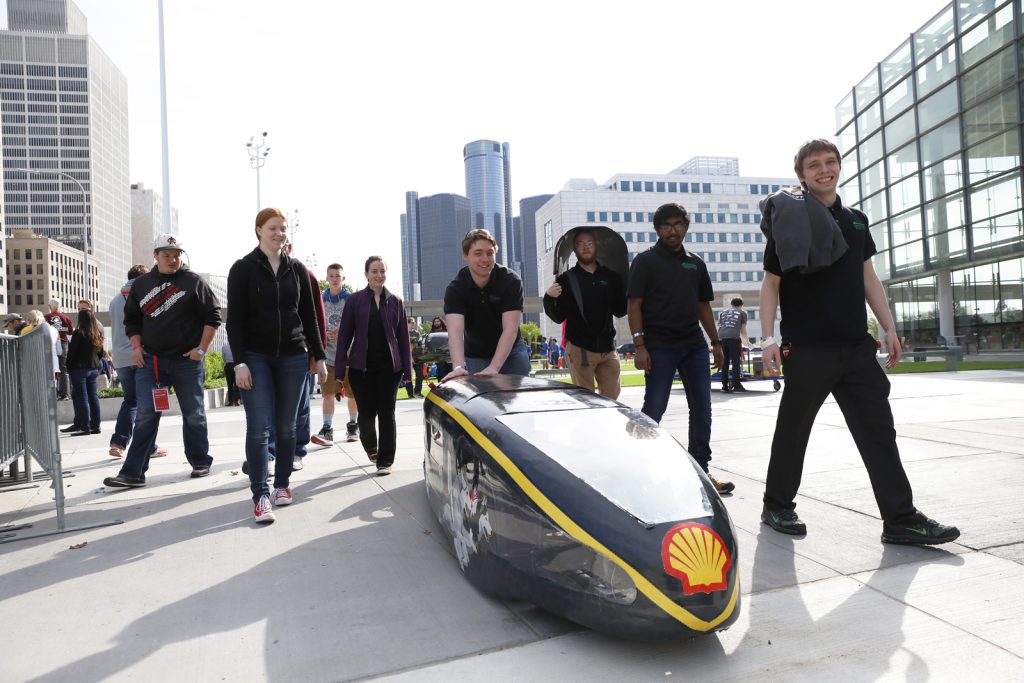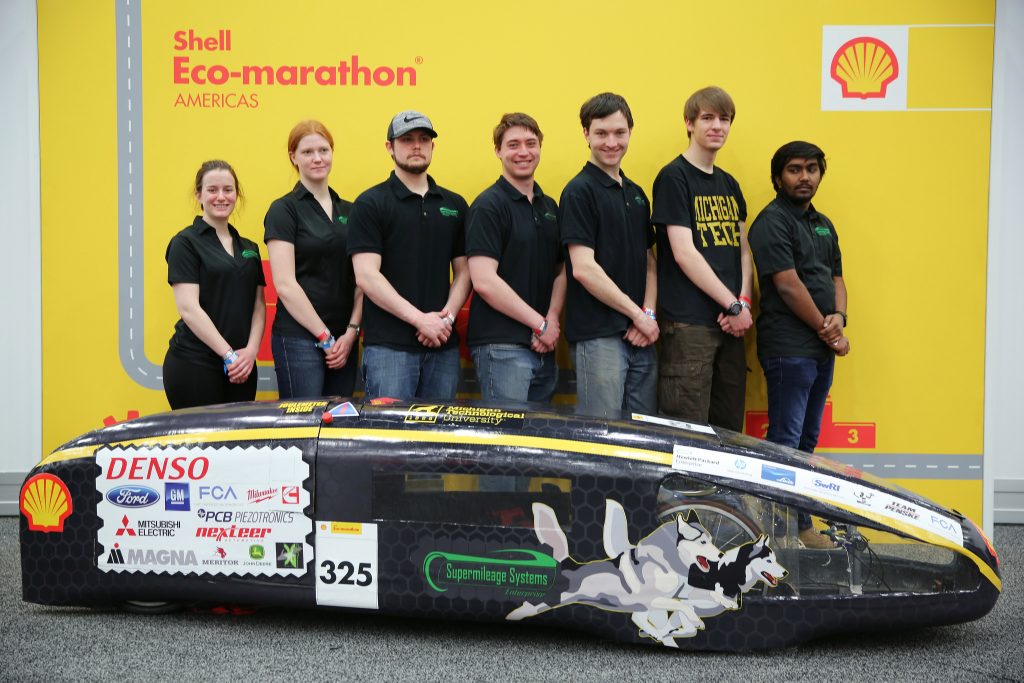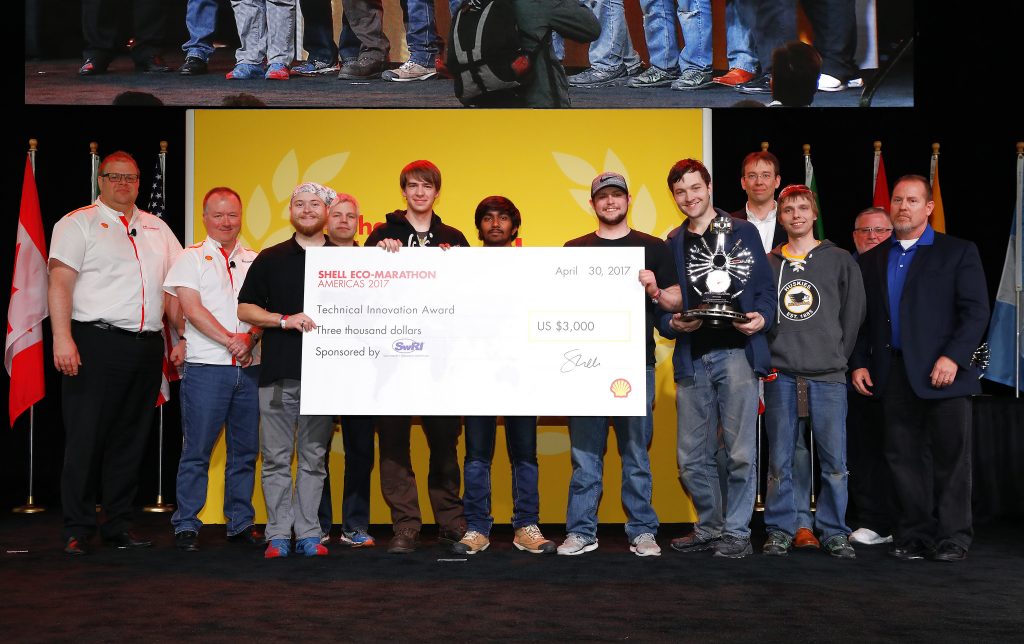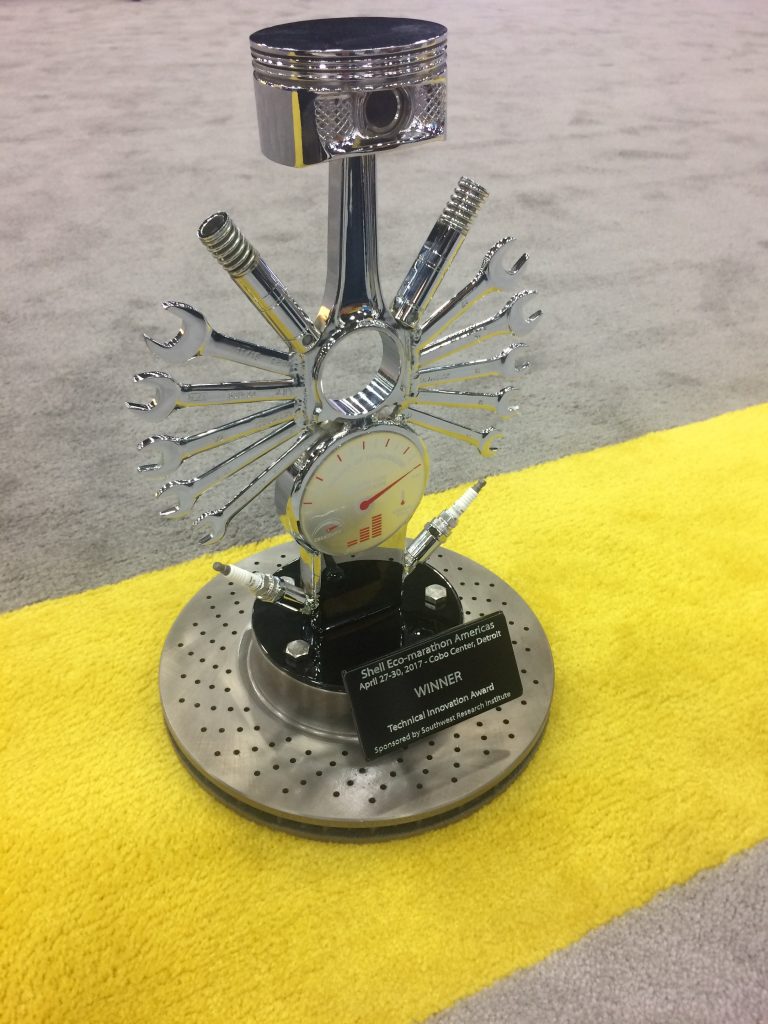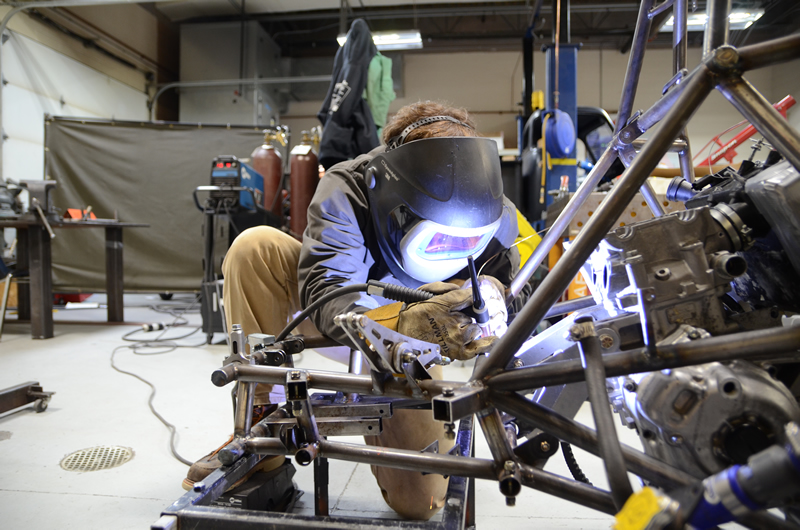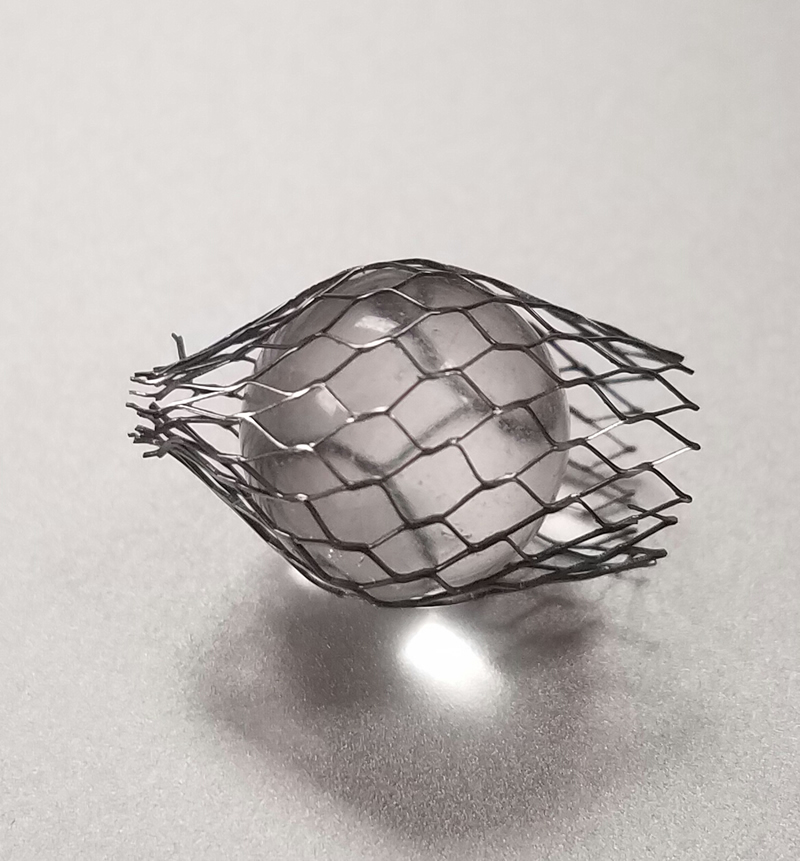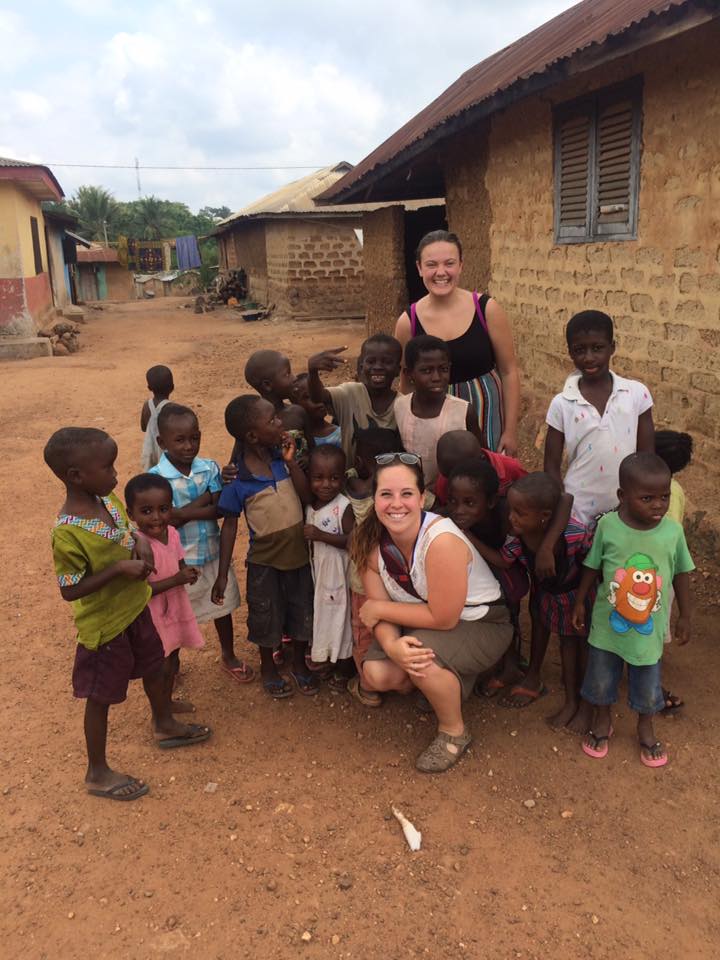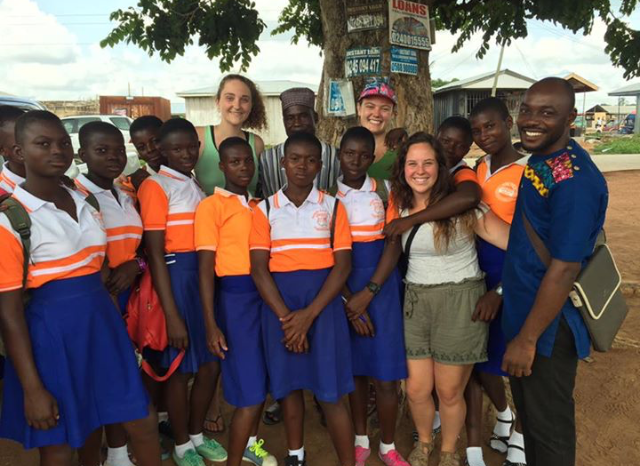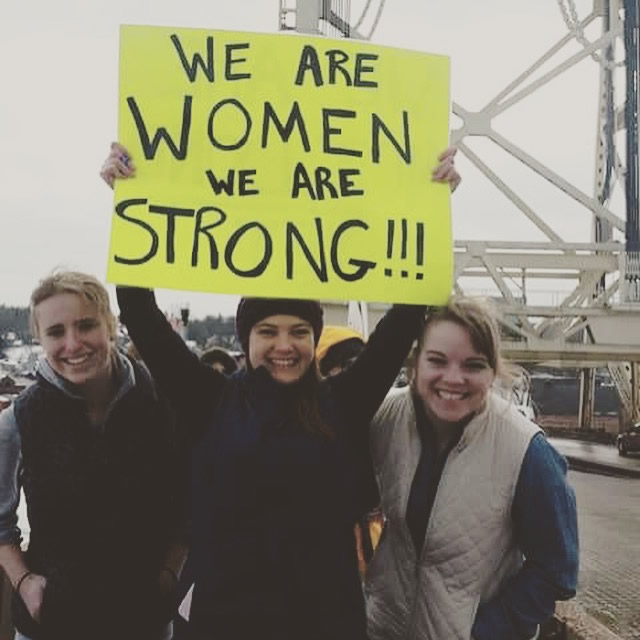CinOptic Communication and Media is a student team in the Enterprise program that focuses on creating photography, video, and sound in communicative media products for clients. They specialize in filming, editing, lighting, acting, and other aspects of media production. The team uses technology to “tell your story,” as advertised on their website. They focus on clarity and creativity in their projects, while also allowing student members to grow in their skills. Located in the Humanities Digital Media Zone in Walker, CinOptic has access to computing equipment, photography devices, editing software, etc. for their work. Within the past year, the team has grown to nine members, including three team leaders and a faculty advisor, Dr. Erin Smith. Additional information on the team can be found at https://cinoptic.hu.mtu.edu/.
Team Leader Matthew Brisson opened up on his experience with the enterprise: “CinOptic has been the most important part of my collegiate experience so far. Without the exposure to hands-on equipment usage and real-world clientele, I would not feel comfortable on my current path. Michigan Tech doesn’t have a lot of options for Humanities students, but CinOptic has been the perfect organization for honing the skills I hope to use after graduation.”
Julianna Humbecke, Team Leader for the biology educational series, describes CinOptic’s project selection process: “Dr. Smith looks over a project proposal, then presents it to the team for us to make the final decision”. She noted the freedom the team has in terms of who they work with.
One of Humbecke’s current projects is creating a series of educational and promotional videos for Biologist Dr. Erika I. Hersch-Green. She explained, “We accompany her in her greenhouse, lab, or mini-internships to record the processes that are undergone and the research she gathers. We then host interviews with her so she can further explain the procedure and we can edit an accurate description to accompany the visuals.” Julianna mentioned that the project is funded by the National Science Foundation to promote Dr. Hersch-Green’s research. It’s meant to follow her progress in research, as well as garner interest in biology and research from high-school students.
Last semester, Humbecke traveled abroad to Germany. Fortunately, another team member could step in to finish up filming and capturing material until she returned. Humbecke described how the organization looks after its members, having members cover one another to help keep projects going. During their bi-weekly meetings, teammates communicate objectives and project progress.
Team Leader Riley Mehki followed up on Humbecke, stating, “My favorite thing about CinOptic is that everyone has a specific role and knows exactly what to do at the end of each meeting”. One of his major projects in the past few years was working with Isle Royale National Park to produce a video guide for visitors. The project included voiceovers recorded by a park ranger, with footage shot from the island. For Mehki, projects like these are “… a great way to learn to work with equipment and real-world clients in a low-stress environment”
If you’re interested in learning more about Enterprise at Michigan Tech, you can visit https://www.mtu.edu/enterprise/.
